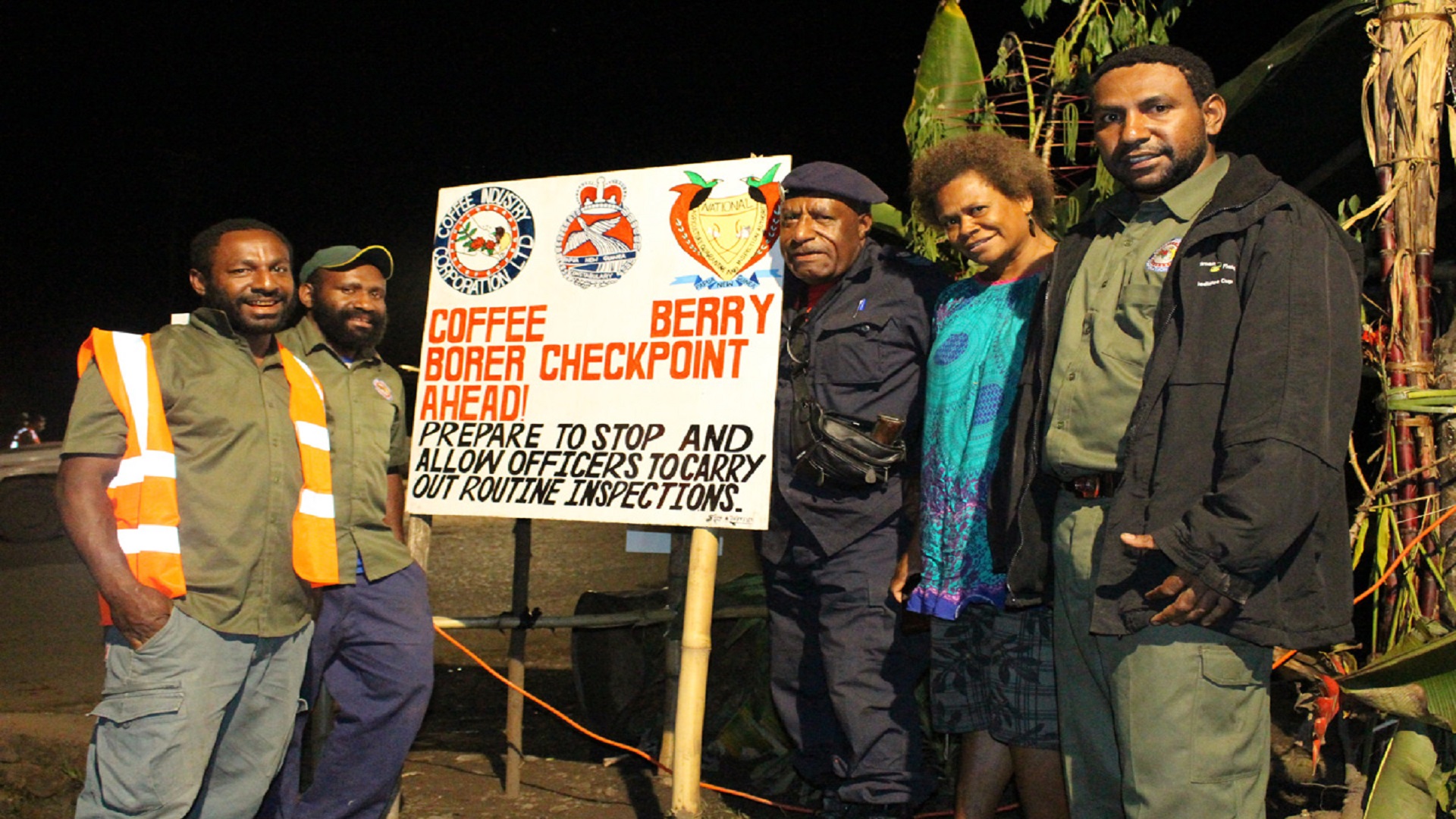The presence of coffee berry borer (CBB) in Papua New Guinea is evident to only less than a percent of coffee growing areas, CIC reports.
Speaking to a room filled with coffee farmers and representatives from various industry players on April 12, in Morobe province, CIC principal entomologist, Dr Nelson Simbiken, said that recent survey reports confirmed the presence of pests in less than one percent of total coffee growing areas—that is less than 200 hectares of coffee growing areas.
“At this point in time, we are advising the industry and all concerned not to panic but to work together with CIC and partners on measures currently been undertaken.”
Simbaken added that CBB can move from country to country through infected coffee that is unprocessed coffee; which includes cherry and parchment.
The entomologist said coffees that are processed to green bean with moisture content less than 12 percent will only be allowed through checkpoints currently being staged at the two locations.
It is understood, the checkpoints are at Koronigl in Simbu Province, and the Lufa/Okapa junction in the Eastern Highlands Province.
According to Dr Simbiken, the only way of detecting CBB is to see and verify coffee beans with holes at the apex end of the bean.
“The pest cannot be seen with naked human eyes so the only way to identify if it’s CBB is to check holes made at the tip of the bean.”
Reports received by EMTV Online states that CIC is currently carrying out the following containment exercises which include; rehabilitation of coffee gardens, doing spot eradication of isolated areas, spraying highly infested areas with insecticide and restricting the movement of coffee from restricted areas into clean areas.
Dr Simbiken added that CIC’s collaborative efforts with partners in Indonesia and the Cabi BioScience (UK) give the confidence that CBB can be managed and controlled.
CIC chief executive officer, Charles Dambui, reaffirmed that CBB is located in a small area, and CIC and partners were in control of the situation.
He said survey results show that the rest of the country is free of CBB, but only in isolated spots in Jiwaka and Asaro and Kamaliki in the Eastern Highlands Province.
Meanwhile, General Manager Industry Operations, Steven Tumae, reiterated that CBB is prevalent in all coffee producing countries and it was not the end of the PNG coffee industry. He said farmers with all stakeholders need to support CIC and partners at this point in time.
Source: CIC Media


